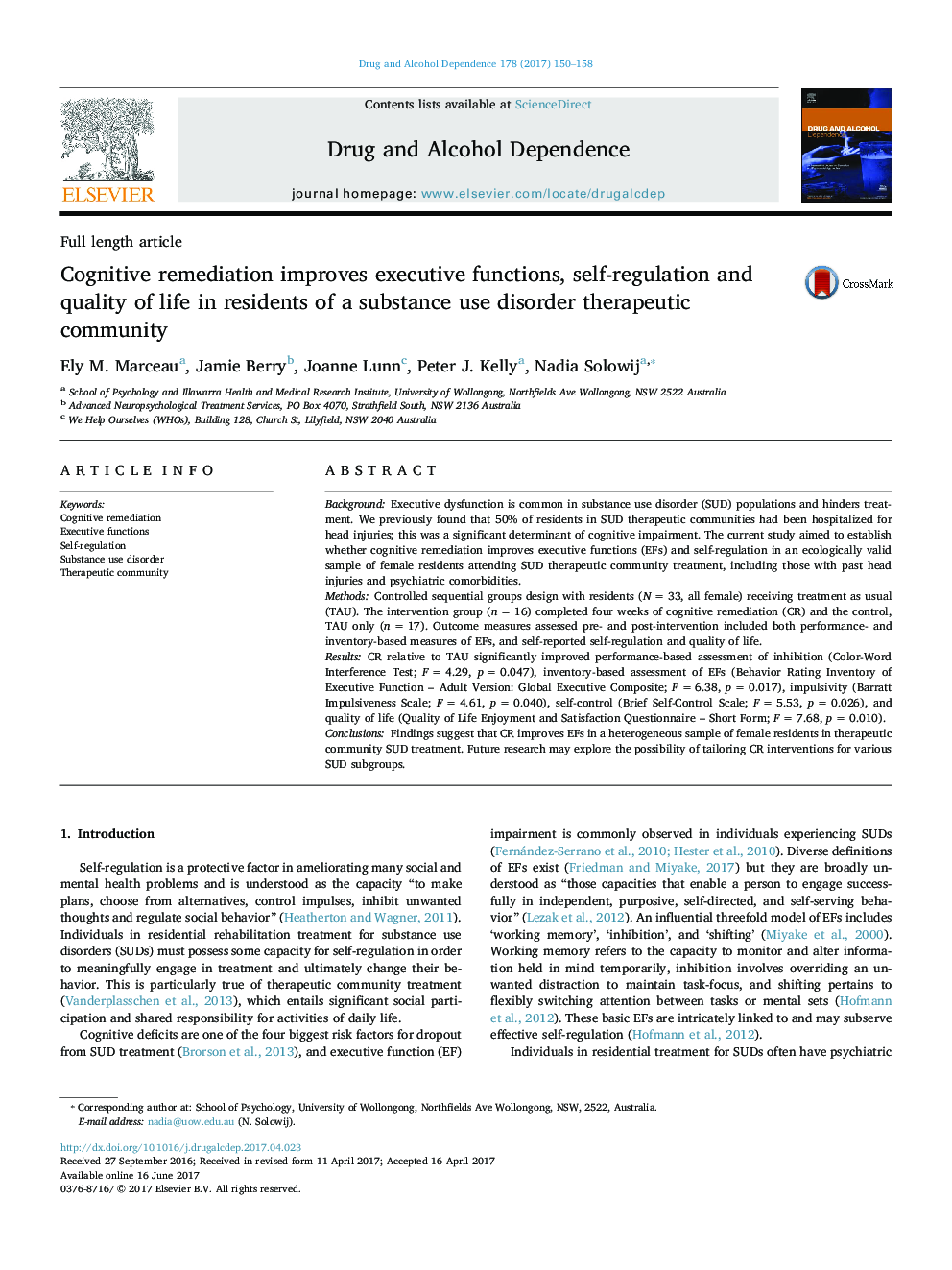| کد مقاله | کد نشریه | سال انتشار | مقاله انگلیسی | نسخه تمام متن |
|---|---|---|---|---|
| 5120344 | 1486113 | 2017 | 9 صفحه PDF | دانلود رایگان |
- Cognitive remediation (CR) was trialled for females with substance use disorder.
- CR improved inhibition and inventory-based assessment of executive functions.
- Decreased impulsivity and increased self-control were observed in the CR group.
- Improvements in quality of life were also reported after CR.
BackgroundExecutive dysfunction is common in substance use disorder (SUD) populations and hinders treatment. We previously found that 50% of residents in SUD therapeutic communities had been hospitalized for head injuries; this was a significant determinant of cognitive impairment. The current study aimed to establish whether cognitive remediation improves executive functions (EFs) and self-regulation in an ecologically valid sample of female residents attending SUD therapeutic community treatment, including those with past head injuries and psychiatric comorbidities.MethodsControlled sequential groups design with residents (N = 33, all female) receiving treatment as usual (TAU). The intervention group (n = 16) completed four weeks of cognitive remediation (CR) and the control, TAU only (n = 17). Outcome measures assessed pre- and post-intervention included both performance- and inventory-based measures of EFs, and self-reported self-regulation and quality of life.ResultsCR relative to TAU significantly improved performance-based assessment of inhibition (Color-Word Interference Test; F = 4.29, p = 0.047), inventory-based assessment of EFs (Behavior Rating Inventory of Executive Function - Adult Version: Global Executive Composite; F = 6.38, p = 0.017), impulsivity (Barratt Impulsiveness Scale; F = 4.61, p = 0.040), self-control (Brief Self-Control Scale; F = 5.53, p = 0.026), and quality of life (Quality of Life Enjoyment and Satisfaction Questionnaire - Short Form; F = 7.68, p = 0.010).ConclusionsFindings suggest that CR improves EFs in a heterogeneous sample of female residents in therapeutic community SUD treatment. Future research may explore the possibility of tailoring CR interventions for various SUD subgroups.
Journal: Drug and Alcohol Dependence - Volume 178, 1 September 2017, Pages 150-158
